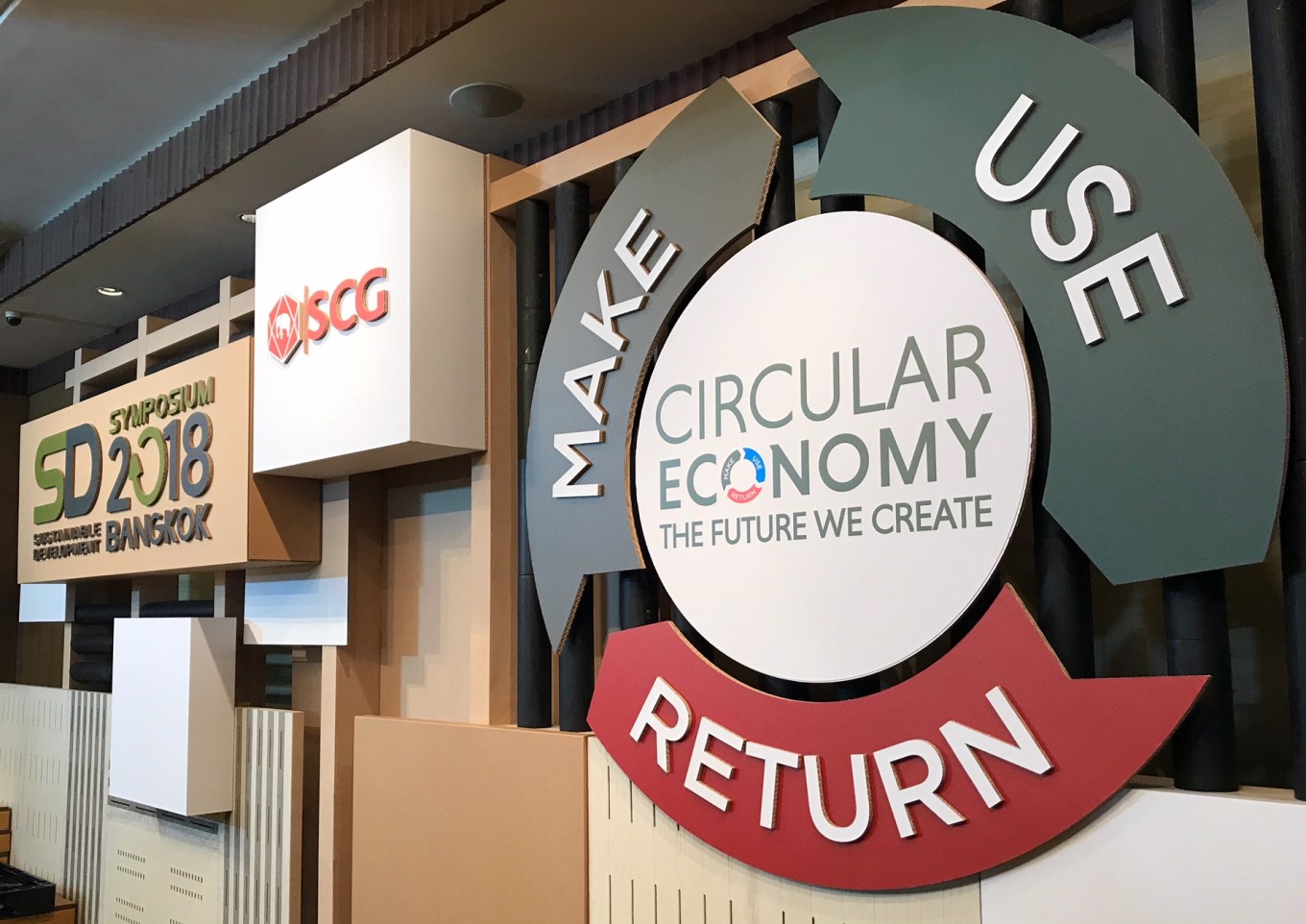Popular Reads
Top Results
Can't find what you're looking for?
View all search resultsPopular Reads
Top Results
Can't find what you're looking for?
View all search resultsCSR, philantropy no longer enough for businesses
Change text size
Gift Premium Articles
to Anyone
I
n an era where climate change is a major concern among countries and international organizations, corporate social responsibility (CSR) and philanthropy are no longer enough.
World Business Council for Sustainable Development (WBCSD) president and CEO Peter Bakker said that just 10 years ago, having CSR programs and conducting philanthropy would be enough for companies to be deemed a “hero”.
However, today, such actions were no longer enough.
“CSR and philanthropy are important, but unless your core business strategy is sustainable, you will not be a hero,” Bakker said during the 2018 Sustainable Development Symposium in Bangkok on Monday in front of hundreds of business leaders and government representatives from across Southeast Asia.
He went on to say that just having a strategy was also not enough — the strategy must be incorporated into a firm’s corporate governance.
“[Businesses must] not only balance the financials of a company but also integrate the environmental and social aspects of it,” Bakker said.
He said a way to do so was by implementing the concept of a circular economy.
According to the WBCSD, the circular economy concept moves away from the traditional “take-make-dispose” economic model to one that is regenerative by design.
Bakker said the concept was much more than recycling; it was how to use products better, longer and how to utilize them again when the products are disposed.










